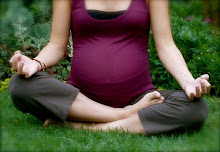i've recently begun reading a fabulous book on mothers and the postpartum period. if you are in need for a postpartum read, i recommend robin lim's after the baby's birth. . .a woman's way to wellness. the unique part about this book is that robin wrote this book while she was pregnant with her fourth child and during her own postpartum phase. much of the advice comes straight from a mother's heart.
here are a few excerpts from robin's book in regards to postpartum practices around the world:
the balinese begin honoring new life in the third month of pregnancy by holding ceremonies in which offerings are given to ensure the health and well-being of the mother and child. once the baby has been born a ceremony is held, during which the afterbirth and apropriate offerings are buried. at twelve days postpartum the new mother is "purified". for the first 105 days of life, the child never touches the ground. she is held in arms continuously until the ceremony that officially welcomes the baby into the family.
sweden encourages mothers to stay home with their babies by giving them two years of maternity leave with full pay. this paid time off from work to nurture the baby may be used entirely by the mother or split with the baby's father.
in india, ayurvedic tradition encourages a new mother to stay at home and be pampered for the first twenty-two days postpartum. her role as an exalted one is honored. this time of rest helps strengthen the infant/mother bond. in this precious laying-in time, breastfeeding becomes smooth, and a feeding routine is established. rest and protection of both mother's and baby's delicate nervous systems are priorities. few visitors are allowed, and mother and baby stay out of the wind and weather, decreasing the possibility of exposure to disease. specially prepared foods are served to the mother.
most births in holland take place at home, and excellent in-home postpartum care is provided by midwives in training. these mother's helpers live in for eight to ten days. they do virtually everything from cleaning to cooking to child care. the helper reports to the midwife who managed the mother's labor and delivery. at day ten and six weeks the managing midwife also checks on the mother and her baby.






No comments:
Post a Comment